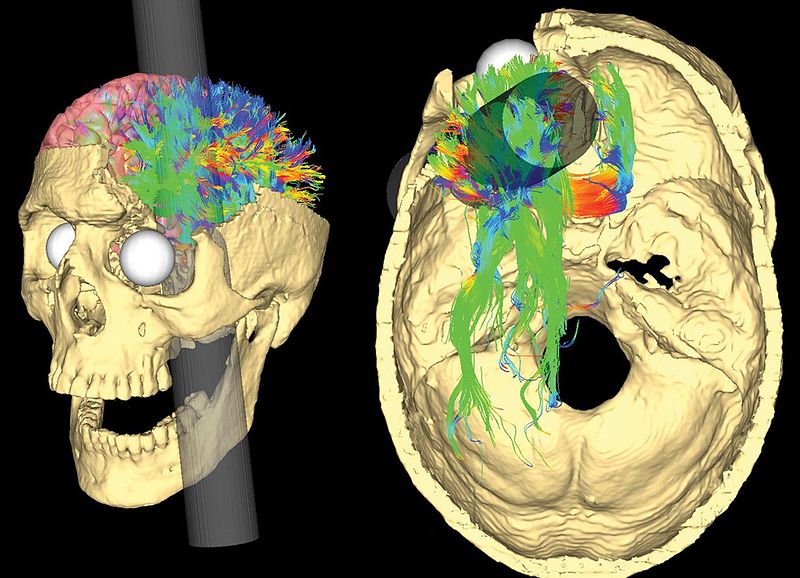orogenicman
Darwin was a pastafarian
- Jul 24, 2013
- 8,546
- 834
- 175
You missed the point entirely.
What is considered plausible is merely a matter of degree and that degree is dependent on what technical possibilities you have been exposed to and find plausible.
Which of the four cases do you find implausible?
No one is claiming that they can upload their minds to a computer...at least not yet.
If you lose half of your brain cells, even randomly, to radiation exposure, I can almost guarantee you aren't going to recover from it. The swelling all by itself is going to kill you.
Phineas Gage - Wikipedia, the free encyclopedia
Phineas P. Gage (18231860) was an American railroad construction foreman remembered for his improbable[C] survival of a rock-blasting accident in which a large iron rod was driven completely through his head, destroying much of his brain's left frontal lobe, and for that injury's reported effects on his personality and behavior over the remaining twelve years of his lifeeffects so profound that (for a time at least) friends saw him as "no longer Gage."
Long known as "the American Crowbar Case"once termed "the case which more than all others is calculated to excite our wonder, impair the value of prognosis, and even to subvert our physiological doctrines"[2]Phineas Gage influenced nineteenth-century discussion about the mind and brain, particularly debate on cerebral localization, and was perhaps the first case to suggest that damage to specific parts of the brain might affect personality.[1]:ch7-9[3]
Gage is a fixture in the curricula of neurology, psychology and related disciplines, and is frequently mentioned in books and academic papers; he even has a minor place in popular culture.[4] Despite this celebrity,[5] the body of established fact about Gage and his personality before or after his injury is small. This has allowed the psychology field to attribute "the fitting of almost any theory [desired] to the small number of facts we have"[1]:290. Through the intervening century, Gage has been cited in support of various contradictory theories of the brain. A survey of published accounts, including scientific ones, has found that they almost always severely distort Gage's behavioral changes, exaggerating the known facts when not directly contradicting them....
ABC's Bob Woodruff, who survived massive brain injury, encouraged by Gabrielle Giffords' progress - NY Daily News
While you may be right about the radiation damage likely killing the person, 1) it is a hypothetical scenario constructed for the example, not meant to be taken literally, and 2) people have survived such sever brain damage and our tech is improving daily, so it could be common for people to survive such things in the not too distant future.
Anyway, thank you for the civil and rational response.
Yeah, well, I have a close friend and my oldest niece, neither of which survived falls down stairs and receiving skull fractures. Even today's modern medicine could not save them. So I am nothing thinking too well about your hypothetical.
